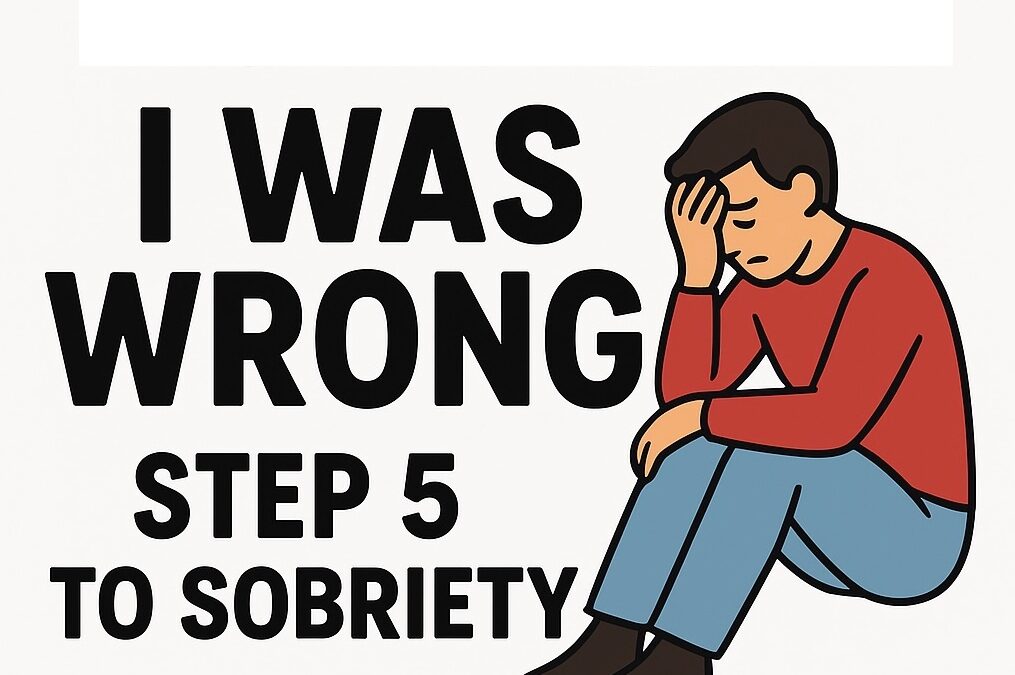There are three words that change everything. They’re not “I love you.” They’re not “I forgive you.” They’re these:
“I was wrong.”
Why are they so hard to say? Because our pride resists them. Our brains scramble to defend us, to prove we were right, to protect our image. But in clinging to our defense, we miss the gift hidden inside confession.
Confession Leads to Healing
Scripture teaches: “Confess your sins to one another and pray for one another, so that you may be healed” (James 5:16).
Notice the promise: healing. The very thing we fear—admitting failure—is the doorway to freedom.
When we release our grip on being right, we open our hands to grace. Admitting wrongdoing doesn’t make us smaller; it makes us whole. It restores relationships, calms our conscience, and invites God’s Spirit to do what denial never could: transform us.
The truth is, the hardest words—“I was wrong”—are also the most healing words. And every time we dare to say them, we taste a little more of the freedom Christ promises.
Why Our Brains Resist
Our minds don’t like holding conflicting truths. On one hand, we want to affirm we are good people; on the other, we know we’ve done wrong. To reconcile the tension, we deny our wrongdoing, minimize it, or blame someone else instead of confessing it.
If we admit we did something wrong, it feels threatening. That sets off the brain’s alarm system (the amygdala). This is why we become defensive, anxious, or even angry. It’s also why Adam and Eve hid from God in the Garden. They felt exposed, ashamed, and afraid to admit the truth. Their fight-or-flight response kicked in.
Pride vs. Humility
When we fall short of the values we claim to hold, we often slip into self-protection. But growth requires the opposite. To move beyond our faults and shortcomings (what the Bible calls sin), we must overcome our pride.
Admitting wrongdoing requires humility. Those who open themselves in this way discover a pathway to freedom.
New beginnings are paved with grace and forgiveness—at least from God. Not everyone will respond with grace, but without confession, guilt remains a burden. As Jesus said: “The truth will set you free.”
The Practice of Step Five
Step Five in Alcoholics Anonymous says:
“We admitted to God, to ourselves, and to another human being the exact nature of our wrongs.”
This is a good discipline even for those not in recovery. Otherwise, when we do wrong, we stubbornly refuse to acknowledge it, and the wrong festers, damaging every part of life.
One alcoholic described his first Step Five experience like this:
“It seemed so strange to sit down with another human being and tell them about my character defects, secrets, and bad behaviors, or share how I had hurt people. With my stomach in knots, sweating, emotional, and stammering through my words, I managed to complete it in just a few hours—and afterwards, I felt amazing!”
Step Five has even been described (unflatteringly) as an “enema of the heart.” Crude as it sounds, the image captures the relief of finally letting go of long-hidden pain and shame. At last, a person chooses vulnerability and admits:
“I was wrong. I’ve been living one way, but presenting myself as someone else. I’ve done things I’ve told no one about. I’m not who people think I am. I need help cleaning up my life.”
A Biblical Picture of Confession
When Jesus met Zacchaeus in Jericho, the tax collector was up a tree, trying to glimpse Him. To the crowd’s shock, Jesus invited Himself to Zacchaeus’ house.
There, Zacchaeus confessed that he had been cheating people. After his confession, he vowed to change his life.
Confession unlocked transformation. Grace met honesty, and a new path began. No doubt, the people must have been shocked when Zacchaeus started making amends.
The Power of Confession
That’s the power of confession—and of Step Five. God already knows what’s in our past. He’s simply waiting for us to realize we can do better.
When we confess that our ways have been out of line with His, healing becomes possible. When we acknowledge that we have been ourselves, wounding others, and straining our relationship with God, only then can we begin to make things better.
Saying “I was wrong” is hard. But it’s also the very thing that makes a new beginning possible.
Note: This is the fifth in a series of articles on the twelve steps of Alcoholics Anonymous. Click the link below to read step four.
https://johnmichaelhelms.com/step-four-made-a-searching-and-fearless-moral-inventory-of-ourselves/

